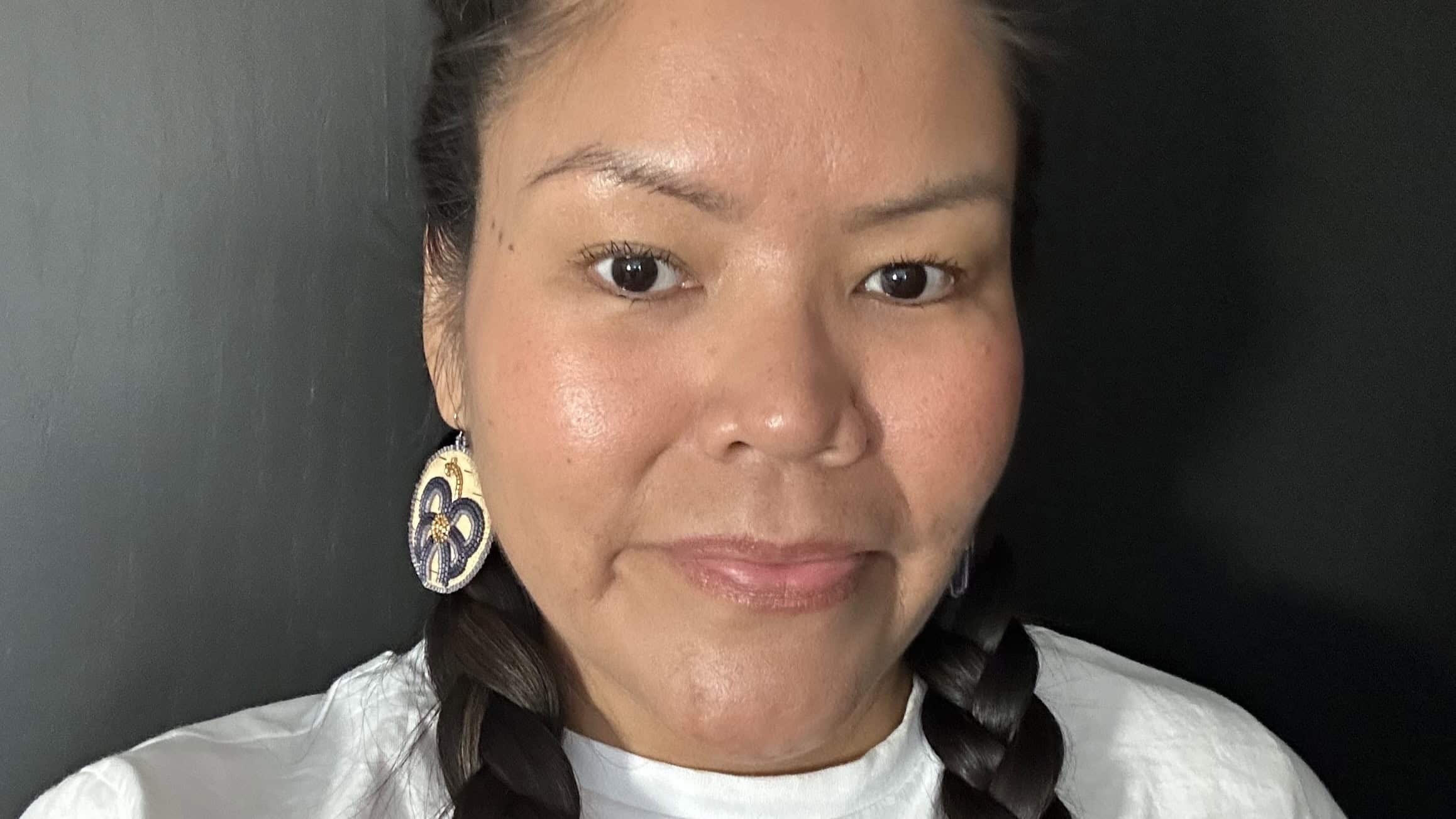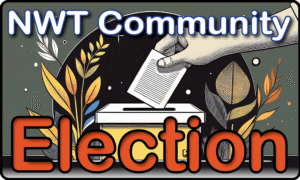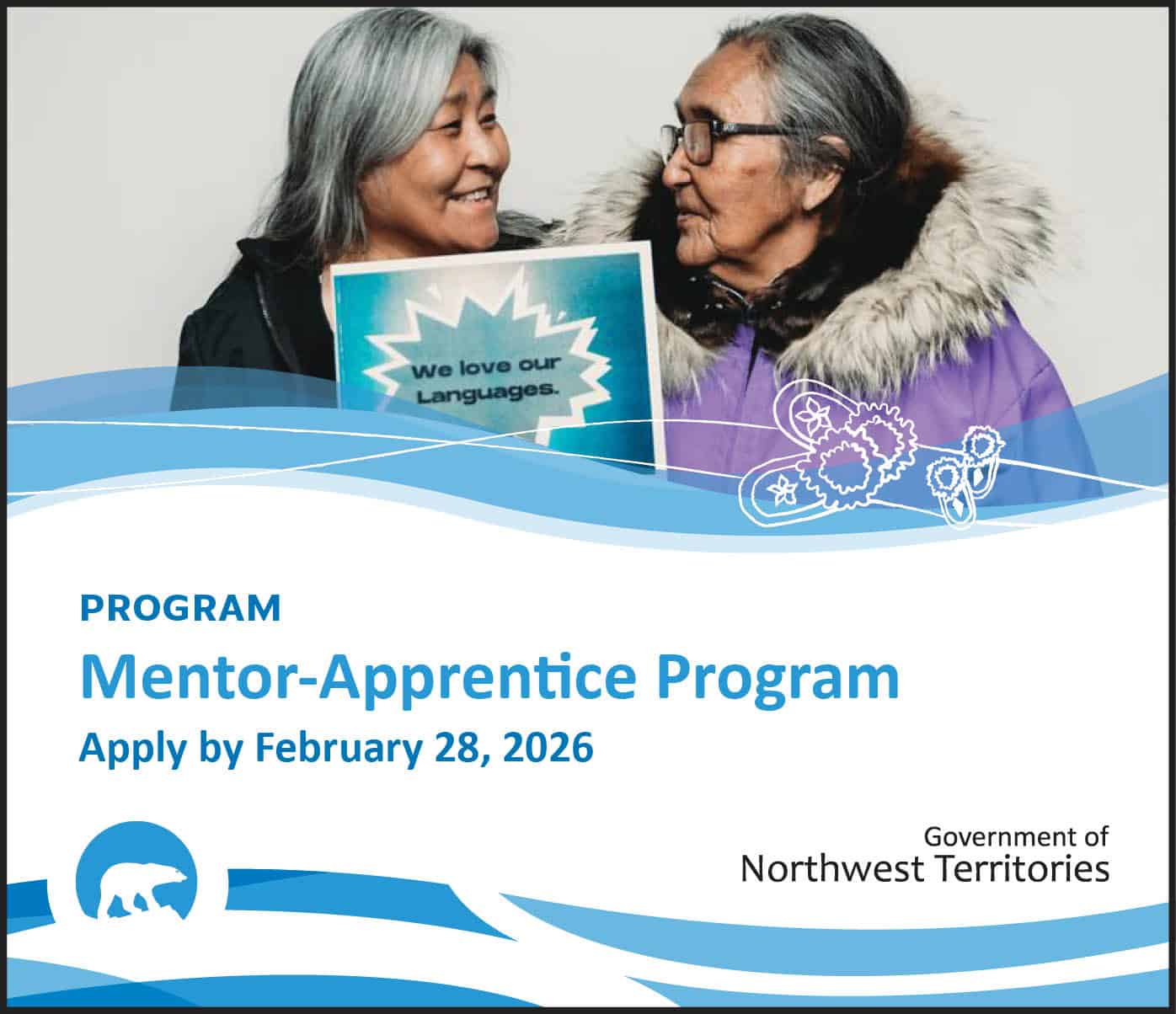Featured
Q&A: Elizabeth Liske hopes to bring a fresh perspective to Ndilǫ leadership
First-time candidate aims to focus on healthy families, land guardianship, and more community input in decision-making

Voters in Ndilǫ will head to the polls to elect the next chief of the Yellowknives Dene First Nation community on August 18.
Four candidates are in the running: incumbent Fred Sangris, Shirley Tsetta, Elizabeth Liske, and Ted Tsetta.

Advance voting will run from August 11 to August 14 at the Ndilǫ Housing Boardroom, from 1 pm to 5 pm.
CKLB spoke with each of the candidates about why they’re running, what their priorities are, and how they plan to lead if elected.
Elizabeth Liske, whose late grandfather Antoine Liske once served as Ndilǫ chief, is running for the role for the first time, with a focus on community wellness, youth spaces, and land guardianship.
The following has been edited for length and clarity.
Josie Wu: What motived you to run for chief of Ndilǫ in this election?
Elizabeth Liske: I was actually nominated and asked if I would run in this election. It was a surprise to me that a couple of community members who thought I’d be a strong candidate. My grandfather, the late Antoine Liske, served as chief for the community back in the day. I also have an uncle who served as chief, so I guess you could say it runs in my family.
JW: How has your grandfather’s legacy influenced your political career and shaped your approach to leadership?
EL: I grew up around my grandparents when I was small. I have memories of being in their household, and they were always having visitors and helping community members. They always seemed to open their home and want to help out, and I think that’s what sticks with me.
JW: What would be your top priorities if elected?
EL: The Ndilǫ school has been wanting its own gym so kids have fair access to a space like that, and I think that’s something achievable in a four-year term. I would also really like to see a fully operational land guardian program for the Yellowknives Dene First Nation so we can assert ourselves in our traditionally territory. I would focus on overall community wellness and healthy families, because I believe that would lead to bigger and greater things for our community.
JW: What would be your plan to advance the Akaitcho agreement?
EL: I would really want to hear more from the community, making sure that they’re informed and are able to provide their own experiences and knowledge so our chief and council know which direction to take.
JW: With recent changes to Jordan’s Principle, what are some challenges you’ve been hearing in the community, and how would you ensure children and families continue to receive vital support without interruption?
EL: On a political level, there’s a need to advocate for our community. I’m not too familiar with where we currently stand with Jordan’s principle, so that’s an area would I’d want to be briefed on and understand better to make sure we’re getting the full benefits.
JW: How would you address drug trafficking, violence, additions and other socio-economic challenges in Ndilǫ?
EL: When I think of that, I think of the trauma our people carry. Many are using substances to deal with their pain and trauma. So I would really want to focus on how could we heal together.
JW: What’s your vision for Ndilǫ for the next few years? What changes would you like to see?
EL: I’d like to hear from members to understand what their visions and dreams are for the community. One member told me they’d like to see more beautification in the community – whether that’s walking trails, something nice to drive past, or more healthy activities.
JW: What message would you like to share with voter ahead of the election? Why should they vote you?
EL: I’ve heard one of our leaders talk about how women think and do things differently. I’m hoping to see some changes and to have a woman sitting in a leadership role like this. Based on my experiences in the philanthropy sector, I’m ready to make changes that help us be more efficient and unite our community in a way where people truly feel heard.



